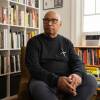The arts and entertainment industry lives by the edict “the show must go on.” It’s a deeply rooted philosophy that was put to the ultimate test by COVID-19.
Now, as cases drop and the pandemic turns a corner — again — venues are cautiously reemerging and welcoming fans back for live music. GBH News spoke to local industry professionals about how they survived and kept the show going, and what they see for the future of live performances.
When Gov. Charlie Baker declared a state of emergency two years ago, live performance venues were among the first in the arts and culture sector to feel the effects.
“The live music industry and the theater business — anything that packed people together to enjoy arts — is essentially the thing that was going to be hit first,” said Brian O’Donovan, host of GBH’s A Celtic Sojourn. “All of us involved in it ... had the notion that we would be the first industry to close and the very last to reemerge.”
It was a premonition that held true for venues across the Greater Boston area, like ONCE Lounge and Ballroom in Somerville, which closed its indoor space for the last time on March 13, 2020.
For smaller spaces in the city, the loss was catastrophic. Since March of 2020, beloved spaces like Allston’s Great Scott and OBERON in Harvard Square permanently closed, despite best efforts to fundraise.
Other local long-standing music venues also have yet to reopen. Among the biggest of these names is Wally’s Cafe in the South End, which has long served as a pivotal spot for up-and-coming local jazz musicians and prides itself in being “the oldest family owned and operated jazz club in the world.”
Artists began live streaming from their homes and studios while venues developed their online presence to create virtual live event spaces. ONCE launched a virtual venue ; Boston Baroque partnered with GBH in September 2020 to bring their performances to home audiences. The Boch Center Wang and Shubert Theaters later joined Flymachine to offer technologically advanced and ticketed livestream events from their venues.
While investing in remote events proved to be a lifeline for some venues, the state’s arts and culture sector still took a $588 million hit during the first year of the pandemic, according to the Massachusetts Cultural Council. Michael J. Bobbitt, executive director of the Mass Cultural Council, said the real impact is likely much worse.
“There were probably thousands of other groups that didn’t fill [the survey] out because they didn’t have the time or they were in crisis,” he said. “The loss was probably closer to a billion dollars, if not more.”

The industry’s economic crisis prompted local and national industry leaders, like Joe Spaulding with the Boch Center, to quickly pull together and form the National Independent Venue Association in April 2020.
NIVA advocated for the U.S. Small Business Administration to create the Shuttered Venue Operators Grant program, which made $16 billion available to support independent venues across the country in April 2021. One of the stipulations of the funding was that the business had to recover and be financially stable in a certain amount of time.
But recovery didn’t seem to be a concern at the time, according to JJ Gonson, owner of ONCE and vice president of the New England NIVA Chapter. Artists were eager to get back on stage and calendars were filling up so fast that bookings were scheduled through October 2022.
Then the challenges started to pile up. Many venue employees were hesitant to come back to work, resulting in a historic staffing shortage.
As O’Donovan put it, “when those jobs went away, [stagehands, roadies, lighting designers, and more] decided to just go in a different direction in their lives,” making the operation of live performances difficult to produce without that core labor.
After that was omicron. For event promoters and producers, the most recent surge in cases threw off every reopening plan.
“We’ve opened and closed so many times,” Gonson said. “It’s really traumatic.”
But the reopening seems to be underway, once again, as Boston looks ahead to spring. ONCE will bring back its outdoor concert series at Boynton Yards this summer, in addition to spring shows at the Rockwell . Starting March 15, the Bowery Boston will have its first shows at the newly constructed Roadrunner venue at Boston Landing. Construction is underway for the new MGM Music Hall at Fenway.
"We've opened and closed so many times. ... It's really traumatic."- JJ Gonson, owner of ONCE
For live music lovers who want to support this period of recovery, local professionals who spoke to GBH News say the best thing to do is go to a show, particularly at an independent venue.
And for fans not ready to venture back, virtual events will be sticking around for the foreseeable future. The past two years gave way to technological advances that create more immersive virtual experiences, Jennifer Ritvo Hughes, executive director of Boston Baroque , told GBH News. Her organization is continuing to offer hybrid programs for its 2021-2022 season.
Hughes sees the rise of streaming and virtual events as just “the tip of the iceberg” of what’s to come. It’s a shift, to Hughes and so many others, that marks “a time of revolutionary change” in how the industry operates. What was once a necessity has since evolved into its own art form, existing now alongside and as a complement to live performance.
While the formal “end” of the pandemic may still be distant , Bobbitt hopes that as the concert halls, clubs and local venues open, they are met with a renewed passion and appreciation for the arts.
“Go see something. Go see it online. Go visit it in person,” he said. “If everyone just imagines a day, half a day, an hour without arts and culture, it would be a bleak and a dark place.”







